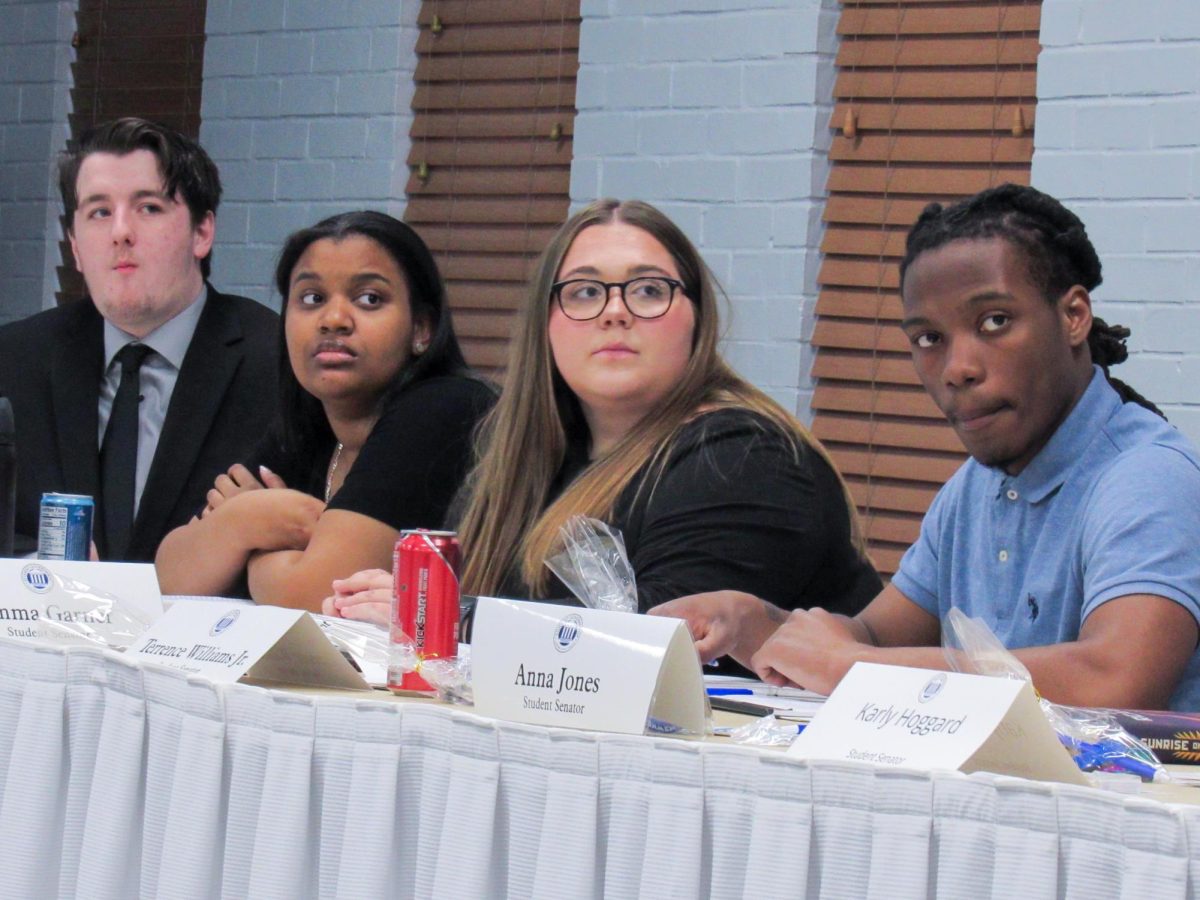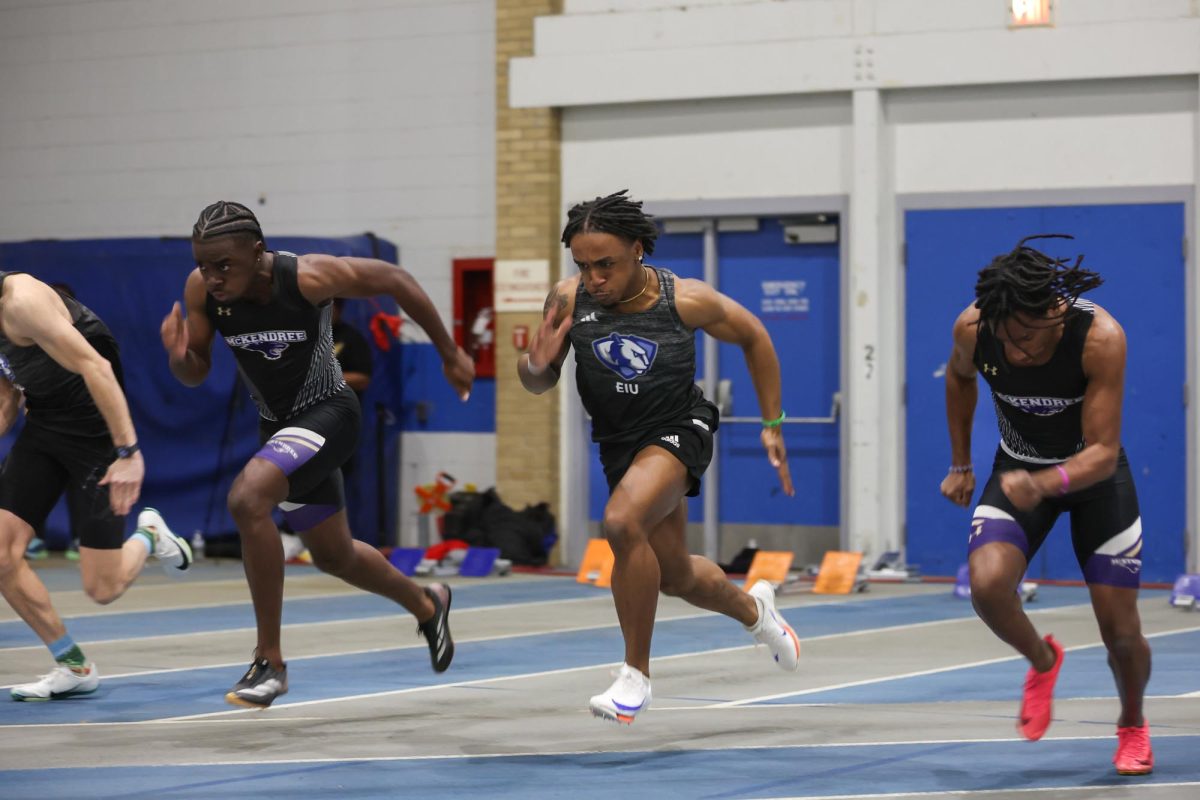EIU-UPI, administration beginning contractual negotiations
March 1, 2018
The EIU-UPI and administration are entering the process of negotiating a new contract this semester.
Both teams will meet on March 9, to talk about the issues they would like to see addressed.
On the EIU-UPI’s negotiating team is philosophy professor Grant Sterling, vice president of the EIU-UPI; English professor Lucinda Berry; Jeff Duck, an academic adviser from the Early Childhood/Elementary/Mid-Level Education department; biological sciences professor Billy Hung and business professor John Willems.
The administration’s negotiating team consists of associate vice president for academic affairs Jeff Cross; Amie Calvert, the director of Employee and Labor Relations; Doug Bower, dean of the College of Education and Professional Studies; Shellie Gregorich, chair of the music department and Austin Cheney, chair of the technology department.
Sterling is acting as the lead negotiator for the EIU-UPI and Calvert is acting as the administration team’s lead bargainer.
When The News asked about negotiations, questions were directed to university spokesperson Josh Reinhart.
Newly adopted negotiation guidelines require joint statements from both sides to the media, and exclude both the EIU-UPI and university administration from sharing other details at this point, Reinhart said.
In a joint statement from Calvert and Sterling, it said members of both bargaining teams met with facilitators from the Federal Mediation and Conciliation Services on two separate occasions.
It was here that the techniques for bargaining contracts were reviewed, including traditional bargaining, interest-based bargaining and a new technique: “straight-up negotiations,” or SUN.
Both Eastern and the EIU-UPI decided to use the SUN process. According to the statement, it would “offer the possibility of less time (than past years) spent engaged in negotiations.”
Some of what the new contract will look like depends on what the Illinois state budget will look like, Blitz said.
“I do not know when we’re going to know that,” he said. “Some of this is out of our control. It would be nice to know in the year what’s coming, what the fiscal situation is going to be. Maybe that won’t happen. We’ll have to deal with that as it comes.”
Provisions for if a budget is not passed can be written into the contract, but Blitz said the idea of these negotiations is to write clear enough contract language so everyone knows what it is and everyone can follow the rules.
“Whatever the contract says, that’s the law. We get into trouble when sometimes it’s either ignored or misinterpreted or differently interpreted by the two parties, but it depends,” Blitz said. “The idea is to write clear enough contract language so everyone knows what it is and everyone follow it.”
Though the UPI president and university president get the final say over the contract, they are not at the table bargaining.
The EIU-UPI put out a questionnaire to all members to get an idea of what issues its membership is prioritizing.
When looking at contract negotiations, oftentimes, the two sides are looking at problems that may have arisen, Blitz said.
“Where are people unhappy?” Blitz said. “Of course, there’s always the across-the-board raises and the workload; there’s always stuff that just always crops up that you put in the back of your mind saying, ‘Well, that’s got to be fixed.’”
One thing that could be looked at is the rehiring procedures for Annually Contracted Faculty members, Blitz said.
“(This is) something that needs to be addressed,” Blitz said. “Both sides see that.”
In 2010, the EIU-UPI and administration negotiated to put multi-year contracts in place for Annually Contracted Faculty members.
However, Blitz said this was done before people knew there would be a fiscal downturn as a result of the budget impasse.
“What has happened is a situation we didn’t foresee, and that is, let’s say a person is in the second year of a third year contract. Another person who is ending their contract with more years of service would be eligible to not be rehired, while the person with less seniority, because they are in a multi-year contract…would have to be rehired,” Blitz said. “So there’s this thing here and nobody likes it, because there’s nothing worse than what people envision as an unfair situation.”
The next session of negotiations will include submitting a maximum of ten issues from each team.
“The goal will be to understand the issues involved as clearly as possible and to understand the needs and concerns behind the requested items,” Sterling and Calvert’s statement said. “Another objective for our next session will be to determine other relevant information needed in order to address the issues.”
According to the statement, the SUN process permits each participant to identify proposed suggestions from the other team that could be a workable solution.
“The general concept of the SUN process is that both EIU and UPI will work together to craft various ideas and suggestions into a package in which an acceptable successor agreement will be achieved,” it said.
When the teams have reached an agreement on the non-economic issues, they will have a final meeting where issues surrounding economic implications will be discussed. After an agreement is reached on this, a sub-group will craft the final language, which will be submitted for approval by EIU-UPI and the Board of Trustees.
The statement said both Eastern and the EIU- UPI were agreeable to the goal of completing the process by Memorial Day.
“The timeline is somewhat aggressive, however, the FMCS facilitators were reasonably optimistic that it could be achieved within this time frame, especially given their experiences with other agencies utilizing the SUN process,” the statement said.
Cassie Buchman can be reached at 581-2812 or cjbuchman@eiu.edu.













![[Thumbnail Edition] Junior right-handed Pitcher Lukas Touma catches at the game against Bradley University Tuesday](https://www.dailyeasternnews.com/wp-content/uploads/2025/03/MBSN_14_O-e1743293284377-1200x670.jpg)

![[Thumbnail Edition] Senior Foward Macy McGlone, getsw the ball and gets the point during the first half of the game aginst Western Illinois University,, Eastern Illinois University Lost to Western Illinois University Thursday March 6 20205, 78-75 EIU lost making it the end of their season](https://www.dailyeasternnews.com/wp-content/uploads/2025/03/WBB_OVC_03_O-1-e1743361637111-1200x614.jpg)







































![The Weeklings lead guitarist John Merjave [Left] and guitarist Bob Burger [Right] perform "I Am the Walrus" at The Weeklings Beatles Bash concert in the Dvorak Concert Hall on Saturday.](https://www.dailyeasternnews.com/wp-content/uploads/2025/03/WL_01_O-1200x900.jpg)
![The team listens as its captain Patience Cox [Number 25] lectures to them about what's appropriate to talk about through practice during "The Wolves" on Thursday, March 6, in the Black Box Theatre in the Doudna Fine Arts Center in Charleston, Ill.](https://www.dailyeasternnews.com/wp-content/uploads/2025/03/WolvesPre-12-1200x800.jpg)
















